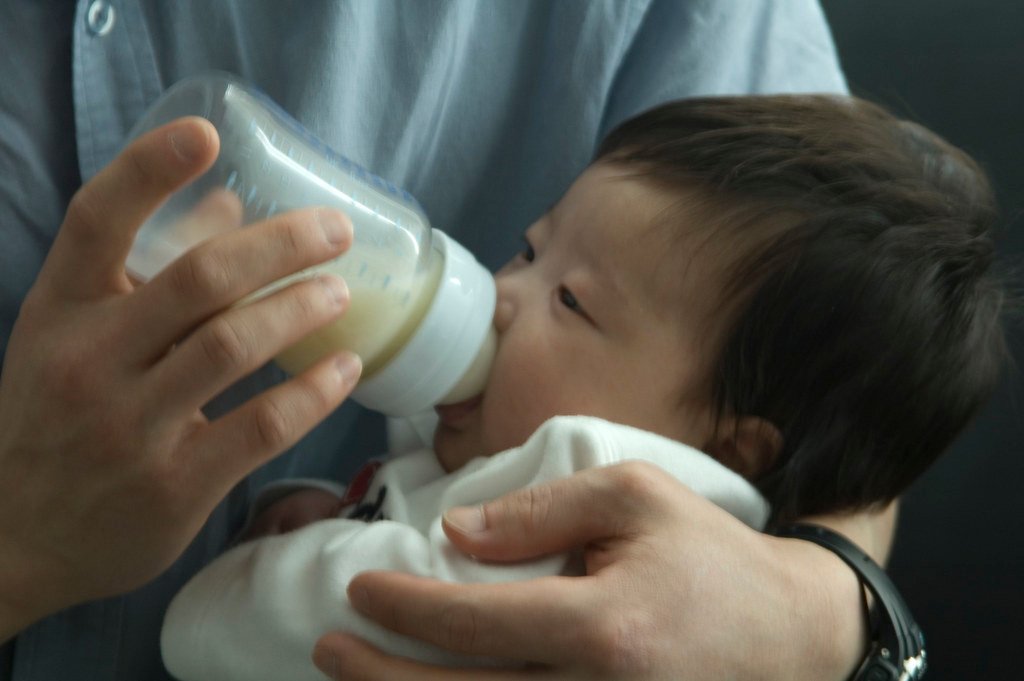Breastfeeding, a primal act of nurturing that powers through generations, transcends mere sustenance and unveils an intricate tapestry interweaving the physical, emotional, and cognitive well-being of both mothers and their newborns. As if crafted with a celestial touch, breast milk is a miraculous elixir, equipped with an extraordinary array of nutrients, antibodies, and enzymes, tailored precisely to suit the ever-changing needs of a growing infant. Moreover, beyond its nutritive prowess, breastfeeding cultivates an unbreakable bond between mother and child, fostering a deep sense of security and trust that reverberates through their journey together. In this comprehensive overview, we delve into the realms of breastfeeding’s myriad benefits, addressing not only its impact on physical health but also the intricate emotions that bloom within its nurturing embrace. Here unfolds a mesmerizing journey through the wonders of breastfeeding, where the extraordinary power of a mother’s love converges with the boundless potential of a newborn life.
Table of Contents
- The Incredible Nutritional Benefits of Breast Milk
- Breastfeeding and Its Impact on Infant Health
- The Emotional Bonding and Cognitive Development Boost of Breastfeeding
- Breastfeeding and Maternal Health: An Essential Connection
- Practical Tips and Recommendations for Successful Breastfeeding
- Q&A
- In Retrospect

The Incredible Nutritional Benefits of Breast Milk
Did you know that breast milk is one of the most remarkable sources of nutrition for infants? Not only does it provide the perfect balance of vitamins and minerals, but it also offers a multitude of other benefits that are truly incredible.
Here are some of the astonishing nutritional benefits of breast milk:
- Antibodies: Breast milk is rich in antibodies, which help protect newborns from infections and diseases. These antibodies are passed from the mother to the baby, boosting their immune system and helping them fight off harmful bacteria and viruses.
- Perfect Composition: Breast milk is uniquely tailored to meet the nutritional needs of babies. It contains the right balance of carbohydrates, proteins, and fats, ensuring optimal growth and development.
- Easy Digestion: Breast milk is easily digestible for infants, as it contains enzymes that aid in digestion. This reduces the risk of digestive issues, such as constipation or diarrhea, which are more common in formula-fed babies.
- Brain Development: Breast milk is packed with essential fatty acids, including DHA (docosahexaenoic acid), which is crucial for the development of the baby’s brain and nervous system. These nutrients contribute to better cognitive function and promote intelligence.
- Hydration: Breast milk is a perfectly designed fluid that keeps babies hydrated, especially in hot weather or during illness. It contains a high percentage of water, ensuring that infants stay adequately hydrated.
These are just a few of the remarkable ways that breast milk nourishes and protects infants. Its nutritional benefits are nothing short of extraordinary, making it an irreplaceable source of nourishment for babies around the world.

Breastfeeding and Its Impact on Infant Health
Breastfeeding plays a vital role in promoting and protecting the health of infants. The exceptional composition of breast milk provides numerous benefits that cannot be replicated by any other means. Let’s explore some of the ways breastfeeding positively impacts an infant’s health:
- Boosts Immunity: Breast milk contains essential antibodies and immune cells that help protect babies from illnesses, such as respiratory infections and gastrointestinal diseases.
- Promotes Optimal Growth: Breast milk is uniquely composed to meet an infant’s evolving nutritional needs, providing the right balance of proteins, fats, and carbohydrates for healthy growth and development.
- Enhances Cognitive Development: Breastfeeding has been associated with improved cognitive outcomes in children, contributing to better cognitive development and higher IQ scores later in life.
- Reduces the Risk of Chronic Diseases: Breastfed infants are less likely to develop conditions like obesity, type 2 diabetes, and certain childhood cancers due to the protective properties of breast milk.
- Supports Digestive Health: Breast milk is easily digested by infants, reducing the risk of constipation, diarrhea, and other digestive issues. It also contains prebiotics that promote the growth of healthy gut bacteria.
- Enhances Bonding: Breastfeeding fosters a unique bond between mother and baby, promoting emotional attachment and providing comfort and security.
Considering its multitude of benefits, breastfeeding is an invaluable gift that empowers mothers to give their infants the best start in life.

The Emotional Bonding and Cognitive Development Boost of Breastfeeding
When it comes to nourishing a baby, breastfeeding offers benefits that go beyond just providing nutrition. The act of breastfeeding creates a unique and profound emotional bonding experience between a mother and her child. Through the skin-to-skin contact, cuddling, and eye contact involved in breastfeeding, a deep sense of trust and attachment is formed, laying a foundation for a strong parent-child relationship.
In addition to the emotional benefits, breastfeeding has been linked to enhanced cognitive development in infants. The composition of breast milk contains essential nutrients, antibodies, and growth factors that support the rapid brain development during the early stages of life. Studies have shown that breastfed babies tend to have higher IQ scores, better problem-solving abilities, and improved academic performance later in life.
The emotional bonding established during breastfeeding also plays a role in cognitive development. The close physical connection and responsive interactions stimulate the baby’s brain, leading to improved social and emotional intelligence. As a mother consistently responds to her child’s cues during breastfeeding, the baby learns important communication skills, emotional regulation, and the ability to form secure attachments with others.
Overall, breastfeeding is not only a means of nourishing a baby but also a powerful way to foster emotional bonding and boost cognitive development. It provides a unique opportunity for both mother and child to connect on a deep level, creating a lifelong foundation for optimal well-being.

Breastfeeding and Maternal Health: An Essential Connection
Breastfeeding: Nature’s incredible gift to both mother and child. It not only provides optimal nutrition for infants but also contributes to the overall well-being of mothers. This remarkable bond between a mother and her baby is far more than just a means of nourishment. It is a symbiotic relationship that positively impacts maternal health and enhances the postpartum experience.
Physical Benefits: Breastfeeding offers a myriad of physical benefits for new mothers. It aids in weight loss by burning extra calories, promoting a more rapid return to pre-pregnancy body weight and shape. The release of the hormone oxytocin during breastfeeding helps the uterus contract, reducing the risk of postpartum hemorrhage and fostering a quicker recovery. Studies have also shown that breastfeeding reduces the risk of certain cancers, such as breast and ovarian cancer, and decreases the likelihood of developing type 2 diabetes.
Mental and Emotional Well-being: The act of breastfeeding releases feel-good hormones, such as prolactin and oxytocin, which promote bonding and relaxation. This experience fosters a strong emotional connection between mother and child, reducing the risk of postpartum depression and promoting overall mental well-being. Breastfeeding mothers often report enhanced self-esteem, improved body image, and a sense of empowerment knowing they can provide for their baby’s needs.
The Bottom Line: Breastfeeding and maternal health share an inseparable connection. It is not only a means of nourishment but a transformative experience that benefits both mother and child. By recognizing and supporting the importance of breastfeeding, we can empower women to embrace and enjoy their journey through motherhood, ultimately leading to healthier individuals and communities.
Practical Tips and Recommendations for Successful Breastfeeding
- Establish a Comfortable Environment: Find a cozy spot where you feel relaxed and undisturbed. Dim the lights, play some soothing music, or use a nursing pillow to support your baby.
- Positioning: Experiment with different breastfeeding positions to find the most comfortable one for both you and your baby. This may include the cradle hold, football hold, or side-lying position.
- Proper Latch: Ensure a good latch by gently guiding your nipple into your baby’s mouth. This will not only prevent discomfort for you but also promote effective milk transfer for your little one.
- Breast Care: Take care of your breasts by keeping them clean and dry. Apply lanolin cream or breast milk to soothe any soreness or cracked nipples. Remember to wear loose-fitting bras and avoid tight clothing.
- Find a Support System: Seek help and guidance from a lactation consultant, healthcare provider, or a breastfeeding support group. Surrounding yourself with knowledgeable and supportive individuals can boost your confidence and provide valuable tips.
- Maintain a Healthy Lifestyle: A nutritious diet and staying hydrated are essential for a healthy breastfeeding journey. Aim for a well-balanced diet, including fruits, vegetables, whole grains, lean protein, and healthy fats.
- Tend to Self-Care: Remember to prioritize self-care. Rest when needed, find moments for relaxation, and engage in activities that bring you joy. Taking care of yourself will ensure you have the energy and emotional well-being to nurture your baby.
Q&A
What are the benefits of breastfeeding for the baby?
Breastfeeding provides essential nutrients and antibodies that help protect the baby from various illnesses and infections. It also promotes healthy growth and development, and is linked to a reduced risk of chronic conditions later in life.
How does breastfeeding benefit the mother?
Breastfeeding can help mothers bond with their babies, and it releases hormones that promote relaxation and reduce stress. It also lowers the risk of certain cancers, helps with postpartum weight loss, and may decrease the likelihood of developing postpartum depression.
Does breastfeeding have long-term benefits for the mother?
Yes, research suggests that breastfeeding may lower the risk of developing type 2 diabetes, high blood pressure, and cardiovascular disease later in life. It may also have a positive impact on bone health and reduce the risk of certain cancers, such as breast and ovarian cancer.
Are there economic benefits to breastfeeding?
Breastfeeding can save families a significant amount of money by eliminating the need for costly formula and baby bottles. It also reduces healthcare expenses as breastfed babies tend to have fewer health issues and hospital visits.
Does breastfeeding have environmental benefits?
Yes, breastfeeding is the most environmentally friendly way to provide nutrition for a baby as it avoids the production and disposal of formula containers. This reduces plastic waste and the carbon footprint associated with formula manufacturing.
Can breastfeeding help with birth spacing?
Breastfeeding can act as a natural form of contraception called lactational amenorrhea. This involves the temporary suppression of ovulation, which can help to space out pregnancies when practiced correctly.
Is breastfeeding beneficial for premature babies?
Yes, breastfeeding is highly beneficial for premature babies. The mother’s milk provides important antibodies and nutrients that can enhance the baby’s immunity and development. It also helps establish the bond between the baby and the mother, promoting emotional and physical well-being.
What challenges can mothers face when breastfeeding?
Some challenges can include difficulty with latching, sore nipples, engorgement, and low milk supply. Other obstacles may include finding time to breastfeed or pump while juggling work or other responsibilities. However, most challenges can be overcome with support, patience, and proper guidance.
In Retrospect
In conclusion, the wonders of breastfeeding extend far beyond nourishing a baby’s body. It is a magical bond that encompasses love, empowerment, and exhilaration. When a mother cradles her little one close, a symphony of life plays out before their eyes.
Beyond its undeniable convenience and cost-effectiveness, breastfeeding grants numerous health benefits to both mother and child. From the first latch, a lifelong immunity is forged within the newborn, shielded against ailments and fostering a stronger immune system. The breastmilk, a golden elixir, unravels a graceful dance of antibodies, enzymes, and essential nutrients, tailored to meet the unique needs of each little soul.
But the advantages don’t stop there. As a mother delights in the natural rhythm of breastfeeding, her body experiences wonders of its own. From reduced risk of postpartum depression to a stronger bond with her child, this act of nourishment transforms her perception of self, weaving a tapestry of confidence and empowerment.
Breastfeeding harbors within it a universe of beauty and wonder, transcending the mundane and flooding life’s moments with joy. Every tender touch, every coo, every sleepy smile exchanged between mother and babe is a testament to the symbiotic dance of nature unfolding.
So let us celebrate this extraordinary bond, born from the essence of life itself. Let us champion breastfeeding as a gift given to mothers and children alike, a mosaic of health, love, and beauty. May this comprehensive overview empower parents, support communities, and illuminate the path towards a brighter and healthier future for all.
As an affiliate, my content may feature links to products I personally use and recommend. By taking action, like subscribing or making a purchase, you’ll be supporting my work and fueling my taco cravings at the same time. Win-win, right?
Want to read more? Check out our Affiliate Disclosure page.